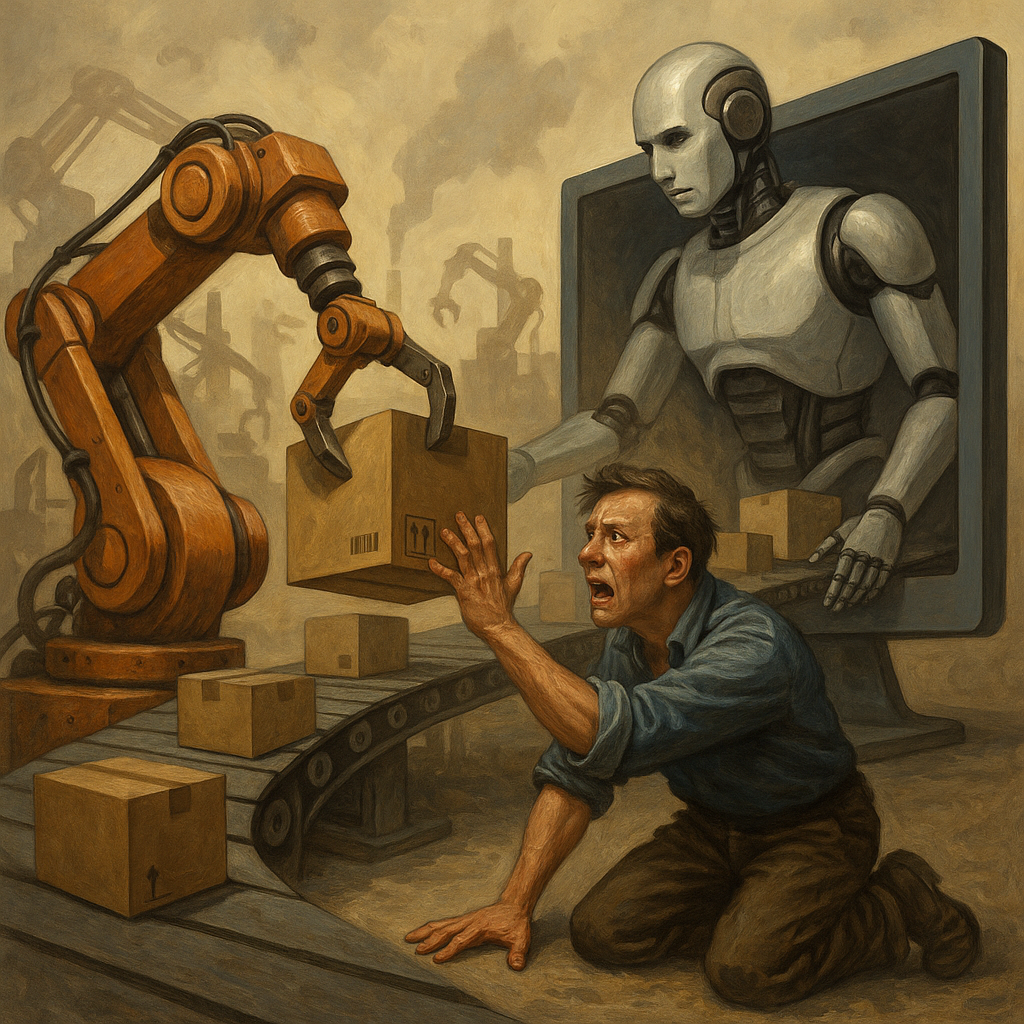Is Technology Taking Over Jobs? The Truth About Automation
Many people today worry that technology and automation are replacing human jobs. With robots assembling products in factories and AI writing articles, it’s easy to believe that machines will soon take over everything. But is that really true?
In this blog, let’s understand what automation is, how it affects jobs, and why technology might be creating more opportunities than it removes.
What is Automation?
Automation means using machines, software, or robots to perform tasks that humans used to do manually. For example:
- A robotic arm assembling cars in a factory.
- Chatbots answering simple customer service queries.
- Self-checkout machines at supermarkets.
Automation makes work faster, cheaper, and often more accurate.
Is Technology Replacing Jobs?
Yes and No.
- Yes, some jobs are being replaced, especially repetitive or physical jobs like:
- Factory workers.
- Data entry operators.
- Cashiers in supermarkets.
- No, technology is also creating new types of jobs, especially in areas that require thinking, creativity, and decision-making.
How Technology Creates Jobs
Every time technology advances, new roles are created:
- AI and robots need people to design, program, and maintain them.
- Businesses need digital marketers, UI/UX designers, and data analysts to grow online.
- Software needs developers, testers, and security experts.
- Even non-tech companies need IT support, cloud management, and cybersecurity.
Example:
Think about ATM machines. They reduced the need for human cashiers but increased the need for:
- Software developers to build the ATM systems.
- Security teams to protect them.
- Maintenance teams to service the machines.
Jobs That Automation Can’t Replace Easily
- Creative jobs: Designers, writers, artists.
- People-focused jobs: Teachers, counselors, doctors.
- Problem-solving jobs: Software developers, product managers, strategists.
These roles need human thinking, empathy, and creativity – things machines can’t fully replicate.
Should You Be Worried?
No. You should prepare, not fear.
- Focus on learning future-proof skills:
- Problem-solving
- Communication
- Creativity
- Basic tech knowledge
- Be ready to adapt and upskill as industries change.
Remember:
Technology replaces tasks, not people.
People who can work with technology will always have opportunities.

Comments
Post a Comment